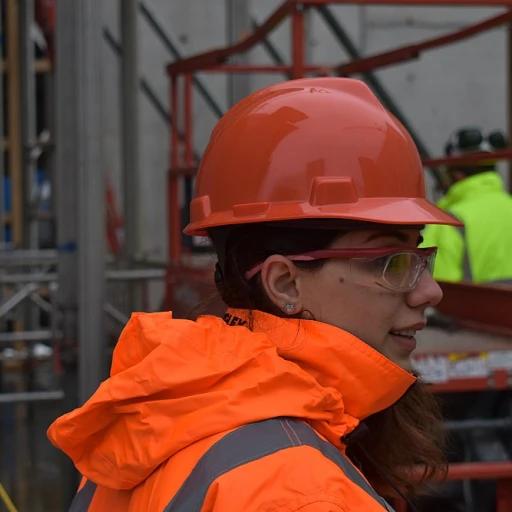
The Role of a Certificate of Trust Form
The Intervention of a Trust Document
In the intricate process of conducting background checks, a Certificate of Trust Form is a critical legal document that can significantly impact the verification procedures. This document serves as proof of the existence of a trust, providing assurance to third parties about the legitimacy of the trust and the authority of the trustees involved. A trust is an arrangement that grants a trustee the authority to manage assets for the benefit of the beneficiaries, under the terms specified by the grantor. Trust documents are therefore essential in ensuring the smooth execution of estate planning. These documents outline the powers trustee has over the trust assets, whether they include real estate, financial transactions, or personal property. One significant advantage of having a trust certificate is its ability to reduce cumbersome documentation that might involve revealing sensitive information tied to the trust assets or the beneficiaries. This legal certification succinctly articulates the necessary information without compromising the privacy of the trust agreement. Moreover, certification trust documents ensure the trustee has the full authority granted by the grantor to manage the trust’s assets, enhancing transparency and easing the execution of financial transactions. For parties who require legal document verification, such as banks or real estate agencies, a trust certificate provides substantial validation that the trustee can execute binding transactions on behalf of the trust. For more detailed insights on how certifications fit into broader background check practices, consider exploring this comprehensive guidance on background check trends. Overall, the role of a trust document or certification in verifying transactions related to trust assets ensures that the trust agreement is upheld while maintaining the integrity and intent of estate planning.Why Trust Verification is Crucial
Emphasizing the Necessity of Trust Verification
In today's complex world, trust verification in background checks has become an essential component for ensuring the legitimate handling of assets and authority. As more individuals and organizations engage in holistic estate planning, the ability to verify the authenticity of documents such as a certificate of trust form is vital. This legal document attests to the establishment and validity of a trust, impacting various financial and real estate transactions. The trustee, empowered by the trust agreement, wields significant authority over trust assets and financial transactions. Therefore, verifying the certification of this authority through a trust certificate becomes crucial for third parties involved in these dealings. This ensures that the trustee operates within the legal powers granted by the trust document and any modifications or amendments made to them. Moreover, with real property transactions becoming more frequent, ensuring that there is full trust in the documentation presented is paramount to prevent unauthorized parties from executing fraudulent activities. Thus, verifying the trust's existence, along with the trustee's powers, mitigates risks related to fake or altered documents and reassures all concerned parties. As the financial landscape evolves and real estate prospects grow, the trust verification process stands as a strategic safeguard, bolstering transparency and fostering credibility. For those interested in the specifics of HR’s role in evaluating such critical factors, consider exploring how HR evaluates job abandonment before hiring, further highlighting the significance of thorough background checks in different contexts.How a Certificate of Trust Form Enhances Background Checks
Enhancing the Depth of Background Checks with Trust Verification
In the intricate process of conducting background checks, incorporating a Certificate of Trust Form plays a significant role in enhancing the quality and depth of the evaluation. When it comes to verifying the authenticity and authority of trusts and trustees, this document becomes a pivotal instrument. It serves as a legal form that offers a detailed reflection of the trust's existence and the powers granted to the trustee. A trust certificate, fundamentally, acts as a confirmation of the elements stipulated in a trust agreement, showcasing the trustee's authority accurately. This can include legal ownership of real estate, management of financial transactions, and control of trust assets. By supplying a certification of trust, third parties such as banks and real estate agents can verify the trust’s validity without the need to access the full trust document. This not only maintains privacy for estate planning but also bolsters confidence in the trustee’s capability to perform transactions involving the trust's property or assets. Furthermore, the trust form allows background check firms to quickly ascertain the legitimacy of a trust, which can include modified or amended trust agreements. This streamlining helps avoid potential legal complications and fraud by ensuring that any financial transactions or commitments made by the trustee are backed by a robust legal document. The importance of such certifications is heightened in professional sectors relying heavily on trust verification, such as real estate, financial services, and legal estates. As the industry continues evolving, it’s crucial for background checks to integrate comprehensive trust verification processes, thus reinforcing the security and transparency of financial and property transactions. South Carolina's new legislative efforts are also emphasizing on the integration of such trust verifications, underscoring the evolving demands from regulatory bodies to maintain stringent checks to protect parties involved in legal and financial transactions. Such initiation affirms how trust verification acts as a pillar in sophisticated background checks, reshaping how authorities and businesses approach asset verification and financial due diligence.Challenges in Implementing Trust Verification
Obstacles in Implementing Trust Verification
The process of implementing trust verification in background checks presents several challenges, stemming from both legal and practical standpoints. The complexity of trust documents and their various forms, such as a certificate of trust, trust agreement, or trust form, makes verification processes intricate.- Legal Intricacies: Trusts involve a myriad of legal documents that vary by jurisdiction. The need for comprehensive understanding of legal documents related to estate planning and real property is paramount. For instance, deciphering the certification of trust assets and trustee authority can be daunting. Legal complexities also arise from verifying the modified or amended trust documents, making it essential to maintain up-to-date knowledge.
- Authentication Issues: Ensuring the authenticity of trust documents and certificates is critical. Financial transactions and property dealings hinge on the correctness of these documents. This challenge not only affects trustees and grantors but also third parties engaged in such transactions.
- Varying Local Regulations: Different states or regions may have distinct codes and standards governing the existence of trusts and trustee powers. This variance necessitates heightened diligence from those conducting background checks to comprehend the local governing laws.
- Lack of Standardization: The standardization of trust certification processes is still developing, which complicates the verification process. This non-uniformity can lead to misunderstandings and misinterpretation of the trustee's full authority and the trust's real property or asset value.
Technological Advances in Trust Verification
Technological Innovations in Establishing Trust
The advent of technology has revolutionized the way trust verification is conducted, particularly in background checks. Various innovations have emerged to strengthen the authenticity and reliability of trust documents. The integration of digital tools provides a seamless way to verify the existence of trusts, validate trustee authority, and assess trust assets.
One key technological advancement is the use of blockchain to maintain immutable records of trust certificates and related real estate documents. This ensures full transparency and minimizes the risk of fraudulent activities, enhancing the trustworthiness of financial transactions involving property and assets.
Moreover, the implementation of artificial intelligence aids in the quick assessment of the legitimacy of trust agreements. AI algorithms can efficiently parse through complex legal documents, identifying any modified or amended trust documents that could potentially alter the trustee's powers. This speeds up the overall verification process while ensuring comprehensive checks.
Beyond AI, cloud-based solutions offer a robust infrastructure for securely storing and sharing trust forms and certifications with third parties involved in estate planning. Such platforms provide an expansive reach and facilitate real-time updates on trust existence, making it easier to access trustee verification without geographical constraints.
Despite these advancements, the reliance on digital solutions introduces challenges related to data privacy and cybersecurity. It's crucial for individuals and organizations to adopt adequate measures ensuring their technological platforms are not only effective but also secure from unauthorized access. Thus, while the future holds promising developments, a balanced approach ensuring both technological efficacy and security will be vital for enhancing background checks and overall trust verification processes.













